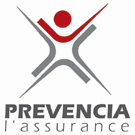Residents of France know that they can call for help by dialling 18 for les sapeurs-pompiers, 15 for le Samu (service d’aide médicale urgente) and 17 for the police. The pompiers are called for help with fires, road accidents, and emergencies, including medical ones.
The Samu is the national ambulance service for providing rapid on-site acute medical care. Calls to both are free. Mostly just French is spoken, but this varies. Their respective call centres will know the caller’s location either from their land-line number or from their mobile’s GPS.
How visitors can call for help in France: 112
Visitors to France – and to any other country in the EU – can call 112 as well. This is the multi-lingual pan-European emergency service. Their call centres handle requirements in the caller’s own language (if necessary with the help of interpreters) and then summon the nearest pompiers or Samu. This works across France and can be freely used by your holiday visitors. 112 is also part of the GSM standard, so compatible mobiles should be able to dial 112 when locked or without a SIM card.

Just remember that 112 is for emergencies only. Don’t hang up until you are convinced the call has ended; the dispatcher may be re-routing your call.
Introduced in 1991, the 112 emergency service, le cent douze in France, is used across Europe around 255 million times a year. It is principally for people travelling across Europe. Useful materials for explaining the service to children are available online.
Links
- The sapeurs-pompiers’ website (in French).
- The Samu website (in French).
- The EU’s 112 website.
- Materials about 112 for children.
The information provided here is for general guidance. The exact details of your policy will define your legal and contractual obligations. What is written there will take precedence over what is written here.
Ces informations sont données à titre indicatif. Pour connaître précisément vos obligations légales ou contractuelles en relation avec votre contrat d’assurance, veuillez vous référer aux conditions générales et particulières de votre contrat.
